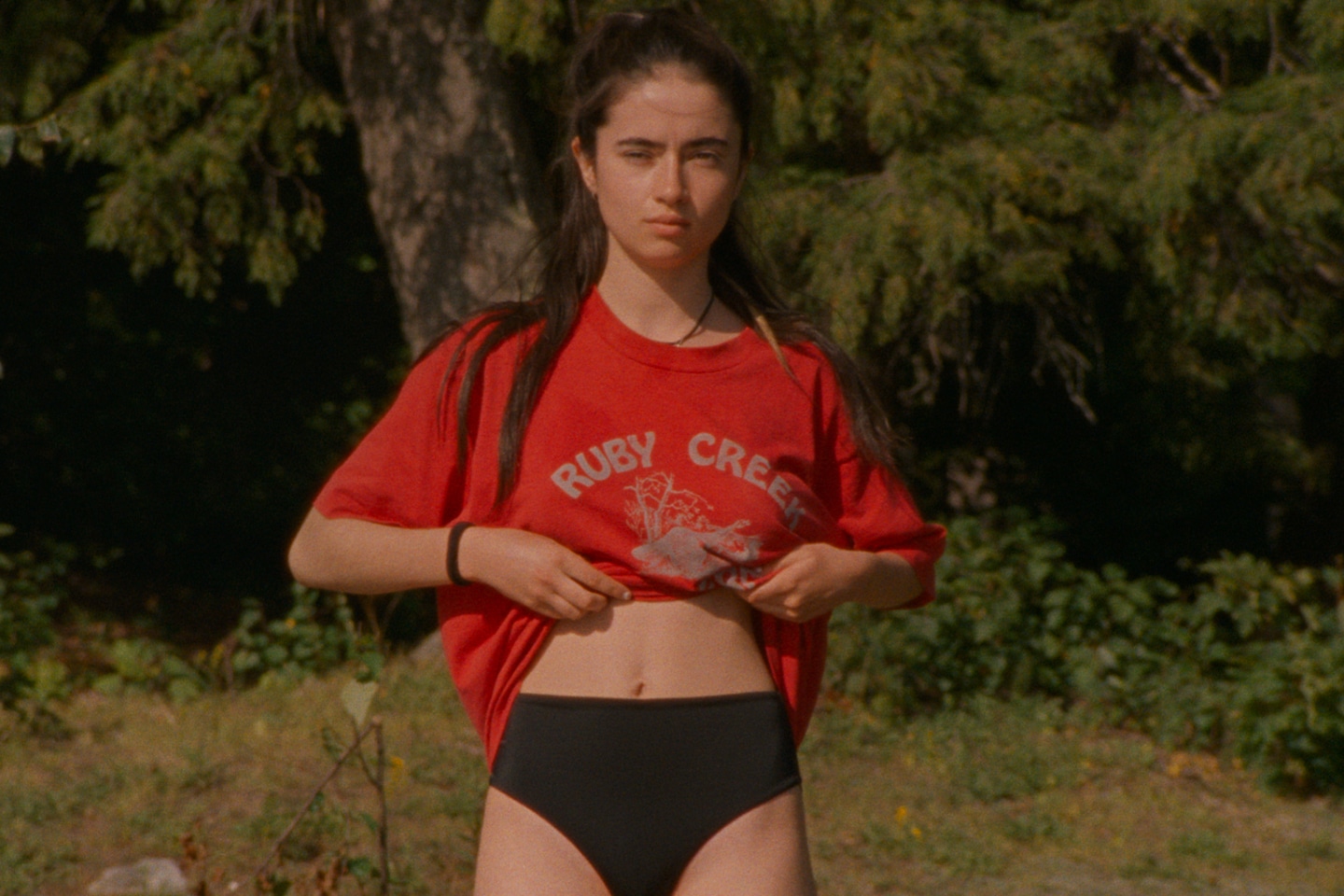“Baby it’s Halloween, and we can be anything.”
The Phoebe Bridgers’ school of haunted longing is rooted in a killer combination of suburban loneliness, Halloween references and dark humour. The musician, famed for wearing a skeleton costume on stage and singing tenderly about love, death and everything in between, harnesses this triptych in her work to speak to the young-adult numbness that can seep in when the world begins to feel inordinately daunting. Canadian actress Charlotte Le Bon’s directorial debut Falcon Lake is a attentive student of this approach, capturing with eloquence and sensitivity just how terrifying growing up can be.
The inherent spookiness of being a teenager has long been prime fodder for genre cinema to play with. Physical changes, shifting moods—the occupation of the body by the demon of puberty is rife with horror potential, even if, in Falcon Lake, the thrills are more subdued than outright scary, with Le Bon opting for atmospheric ghostliness over obvious terror. Still, Bastien is a teenage boy so it’s very believable he could be overcome by the sensuality of family friend Chloé, during one lazy summer vacation in Quebec. They say girls mature faster than boys and Chloé seems lightyears ahead, all burgeoning sexuality and contempt for authority, giving off the faux assuredness of an adolescent girl who wants people to believe in her worldiness, even if doesn’t. Bastien is smitten. Chloé tells him ghost stories and takes him to parties, introduces him to alcohol and kissing. The darker tones of Le Bon’s film mean that these teenage rites of passage are given a gravity that they don’t always receive elsewhere, but that’s not to say the movie presents a doomed vision of youth. In fact, the filmmaker’s deft hand balances severity with lightness and humour, to offer a multifaceted view of what it means to come of age.
Chloé has a penchant for donning a white sheet and pretending to be a ghost in the woods, or for lying in the middle of the road and playing dead. The ties between girlhood and the morbidly supernatural in both Bridger’s music and Falcon Lake recognise the inherent weirdness of being young and unsure of yourself, but they also point to the otherworldly power of this time in life. Teenage girls can be insecure and uncertain, but they can also harness, for the first time, a semi-mystical feminine strength that makes them sparkle to everyone around them. As Bastien falls harder for Chloé, and Chloé simultaneously undergoes the inevitable realisation that her arrogant ex will do her no good, their bond coalesces into something anxious but beautiful, tentative yet aching.
Understanding this sacred dynamic between teenage lovers is Le Bon’s greatest skill; the chemistry between stars Sara Montpetit and Joseph Engel is inherently magnetic but elevated to its highest potential by the sympathy of the director. Chloé and Bastien bring out the best in each other, too, each opening the other’s eyes to fears and braveries they may never have discovered alone. There’s no such thing as a comfort zone here. All boundaries are splintered by their mutual, hesitant attraction, and even Chloe’s fondness for challenging and needling Bastien recedes as they venture together into the eerie darkness of adolescence. It will take a tragedy to break their earthly bond, but as Falcon Lake, Phoebe Bridgers and all the death-obsessed teenagers before and since believe, perhaps beyond this realm, they’re fated to haunt one another forever.
Caitlin Quinlan is a film critic and writer from London with work published in The Guardian, frieze, ArtReview, and MUBI Notebook among others.
This is one of ten essays specifically commissioned for BFF22.
